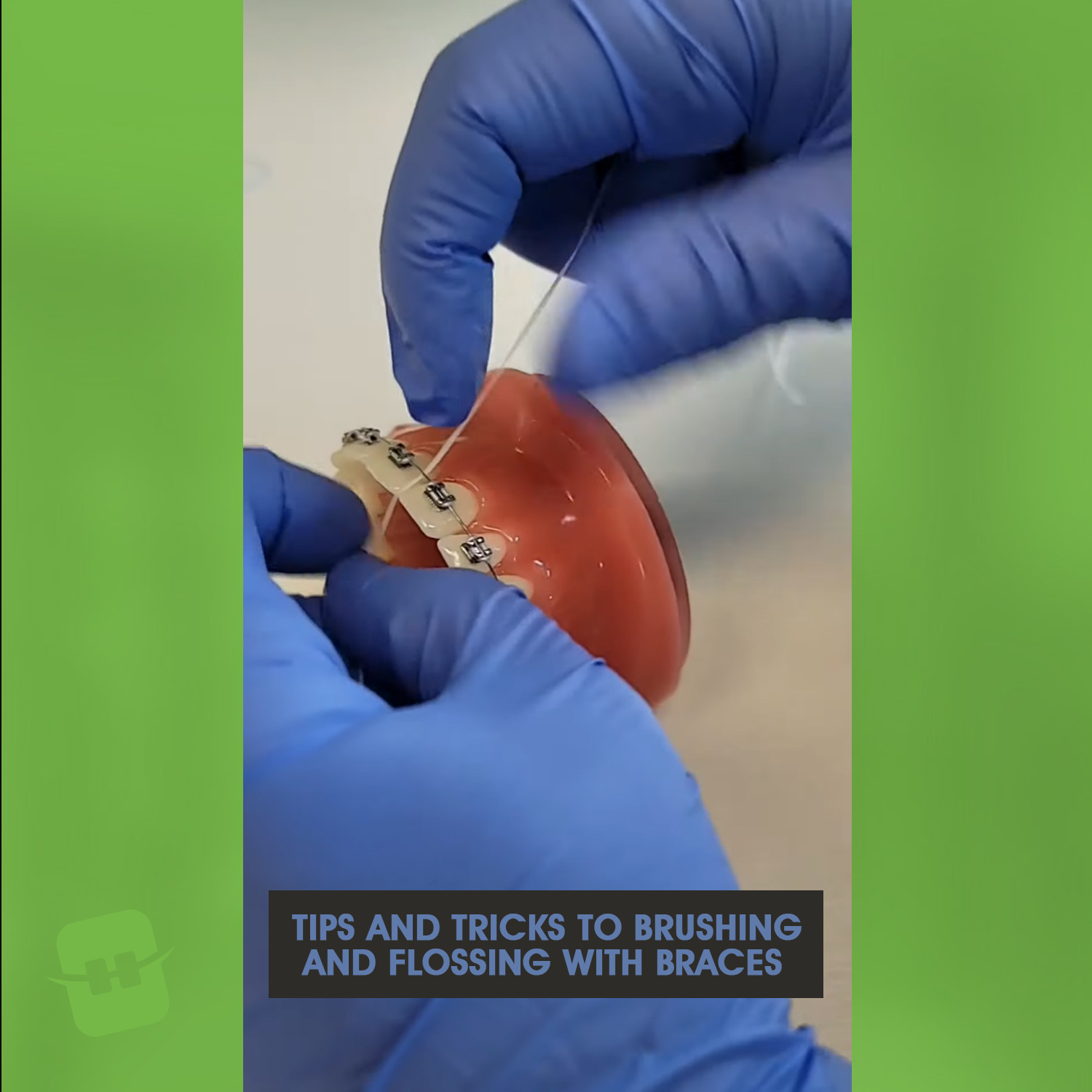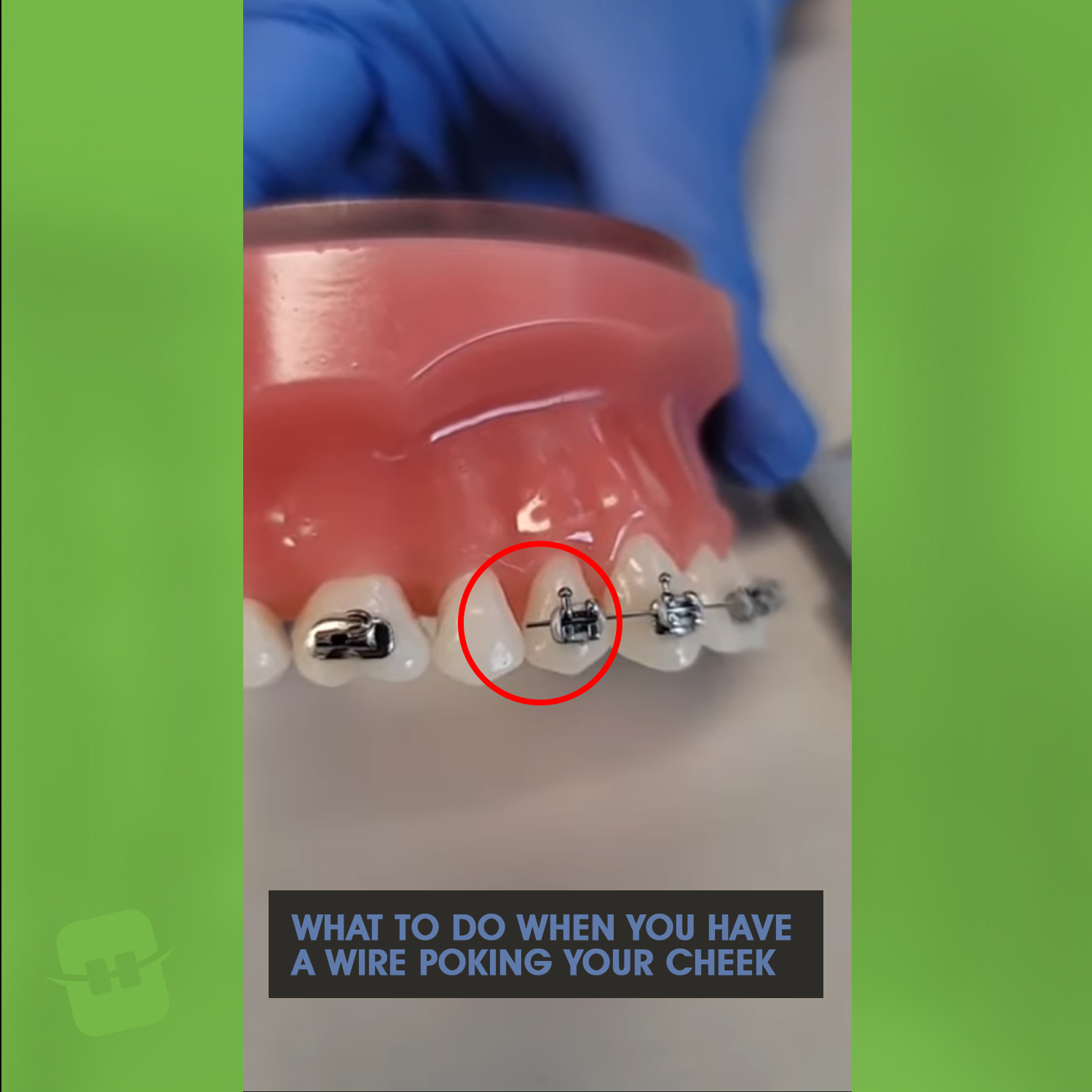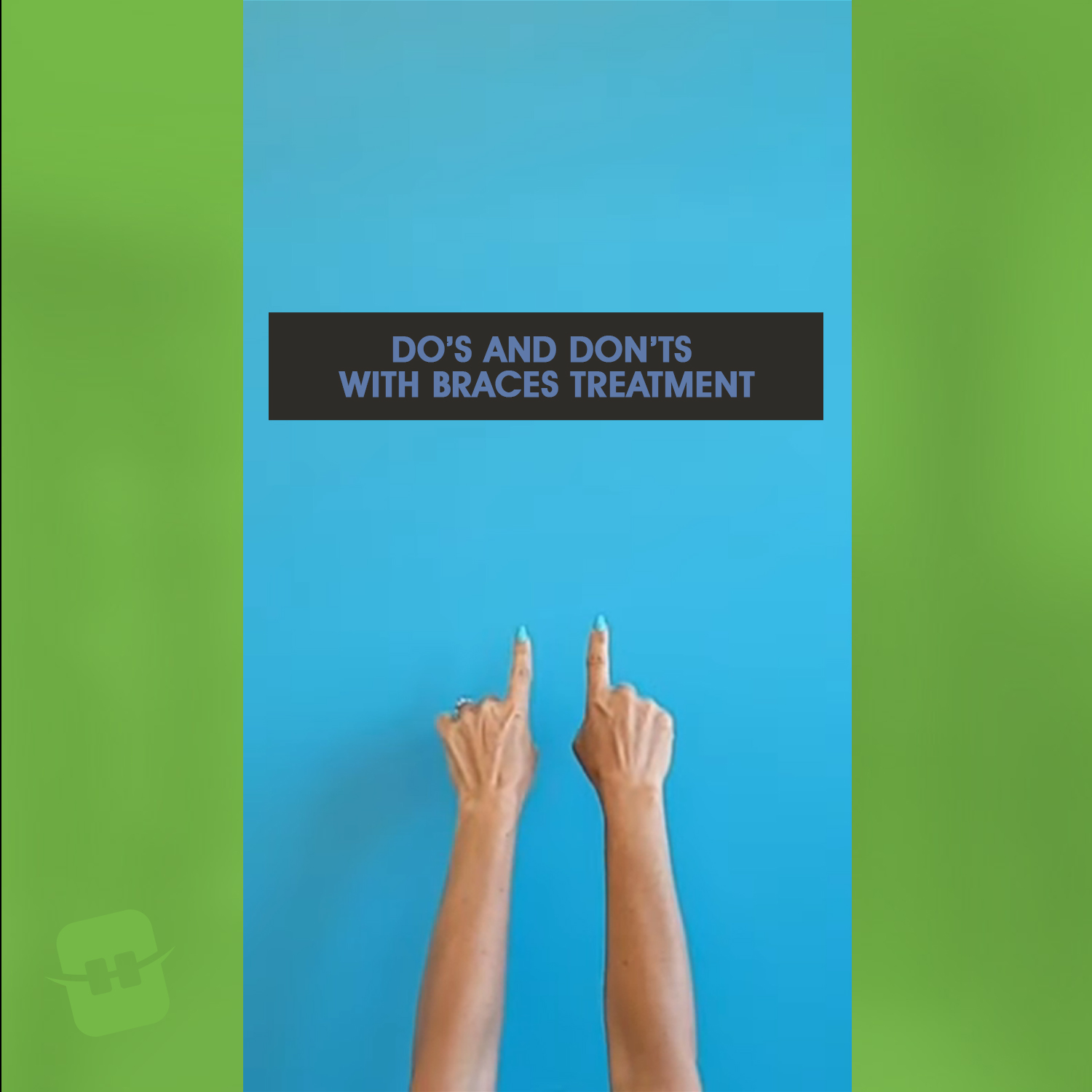Caring for Your Braces
Braces won’t interfere with your day-to-day life but you will have to make some adjustments. By caring for them properly, you’ll be able to get the best possible results. Here’s everything you need to know about life with braces. If you ever have any questions, don’t hesitate to give us a call at 250-762-2824.
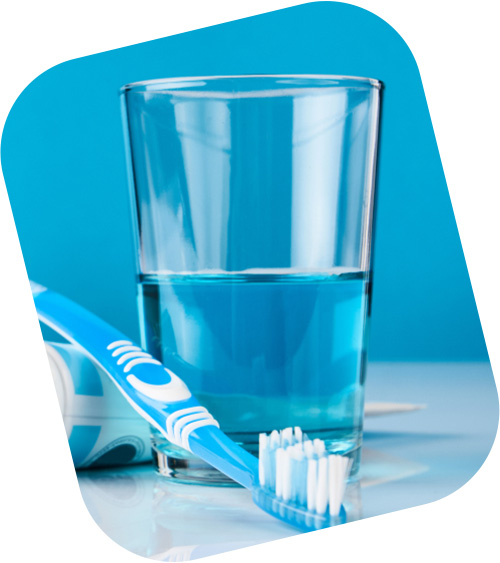
Oral Hygiene
When you’re wearing braces, it’s more important than ever to brush and floss regularly. That’s because they tend to trap food and plaque and you want your teeth and gums to be healthy when you finish treatment. We’ll monitor your oral hygiene and offer tips, tricks and motivation along the way.
When you have braces, you should brush your teeth in the morning, after meals and snacks and before bed. Use a soft-bristled toothbrush (either manual or electric) and non-whitening, fluoride toothpaste. Hold the brush tilted at a 45-degree angle to brush along the top and bottom of your braces. Make sure you give each tooth individual attention and cover every surface.
Floss with braces at least once a day. Using a floss threader or an orthodontic flosser, get the floss underneath your braces wire and then floss around each tooth all the way up to the gum line. We also recommend Waterpiks to help. Depending on your needs, we may prescribe a special mouth rinse for extra protection.

What to Eat With Braces
What can you eat with braces? Pretty much anything! However, the first day or two after getting your braces put on and, sometimes following adjustments, your teeth may feel sensitive. On those occasions, stick with softer foods and cold drinks and avoid tough meats, raw vegetables and hard breads. For the rest of your treatment, while you can still eat most of the foods you love, you’ll want to be careful to avoid breaking your braces. You’ll find cutting foods into small, bite-sized pieces is helpful and will go a long way in keeping your appliance safe.
Foods to Avoid With Braces
- Chewy foods: bagels, hard rolls, licorice
- Crunchy foods: popcorn, chocolate bars with nuts, chips
- Sticky foods: caramels, gum
- Hard foods: nuts, candy such as Jolly Ranchers
- Foods you have to bite into: corn on the cob, apples, carrots
- Chewing on hard things: ice cubes, pens, pencils or fingernails can damage your braces and this may make your treatment take longer

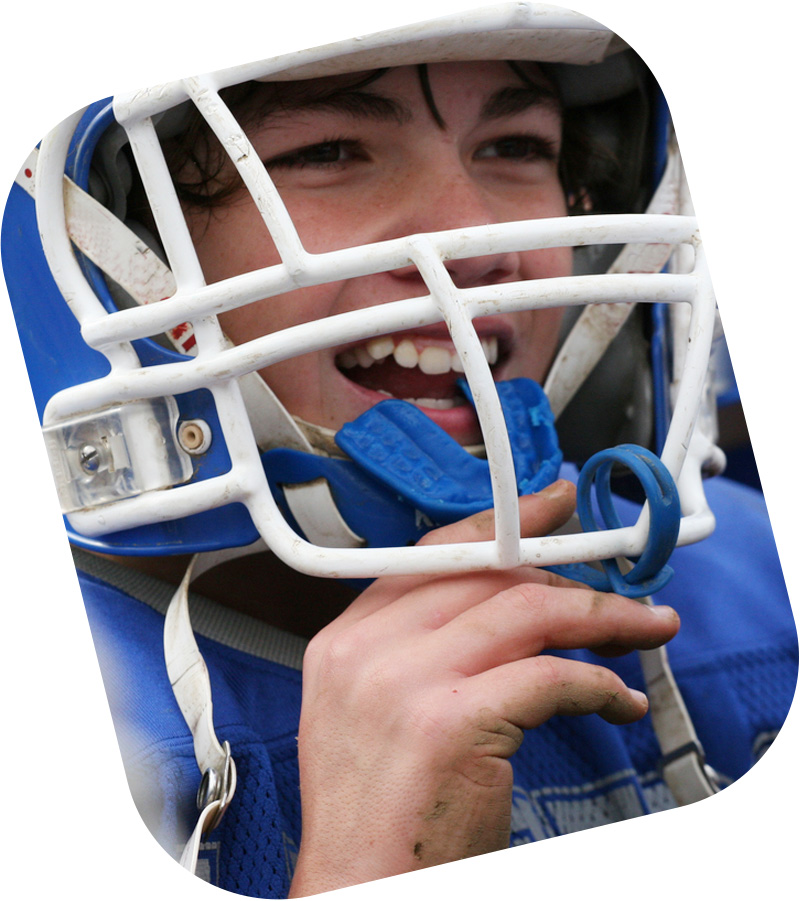
Athletics
If you play sports, let us know because you’ll need to take special precautions. It’s recommended that people with braces wear a protective mouthguard during contact sports. Since your teeth will move during your treatment, you’ll have to refit your mouthguard along the way. If you opt for a boil-and-bite type, you’ll be able to refit it a couple of times before you need a replacement. In case of any trauma to your face, check your mouth and your appliances right away. If your appliance is damaged or your teeth feel loosened, call us for an appointment.
Braces Emergencies
Loose or Broken Bracket
Don’t stress if a bracket or band comes loose. It can happen occasionally. If the last bracket on your braces breaks off and the remaining wire sticks out, very carefully trim the end with a sterilized, clean nail clipper or wire cutter. This works in a pinch if you’re out of town. If your loose bracket or band is still attached to the wire, you should leave it in place and put wax on it. Sometimes, it’s okay to leave the broken bracket on the wire (if it doesn’t hurt) until your next visit, as all of the other teeth are moving.
Give us a call as soon as possible in the case of loose or broken appliances and we’ll get you in for a repair appointment. If a piece comes off, save it and bring it with you to your next visit.
General Soreness
When you first get your braces on, you may feel general soreness in your mouth and your teeth may be tender to biting pressure for two to five days. You can also have a similar sensation after adjustments but it will last for a shorter amount of time. To relieve discomfort, make a salt water rinse by dissolving a teaspoon of salt in a cup of warm water. Swish it around your mouth and then spit it out. You can repeat this as often as you’d like. For more significant tenderness, you can take Tylenol or whatever over-the-counter pain reliever you normally take for a headache or similar pain.
Poking Wire
Your first step is to place the orthodontic wax we gave you over the poking wire to alleviate discomfort. If it’s still bothering you, you can use clean tweezers to gently try to maneuver your wire back into place. As a last resort, use your clean, sterilized nail clipper or wire cutter to trim the end behind the last tooth to which it’s securely fastened. Call our office if you can’t solve the problem and we’ll be more than happy to help!
Loosening of Teeth
Don’t be alarmed if your teeth feel a little loose! This is totally normal and to be expected throughout treatment. In order for the teeth to move, they must loosen slightly. Don’t worry; they’ll become rigidly fixed in their new positions.
Irritation
When you first get braces put on, the brackets and wires can irritate your lips, tongue and cheeks. Your mouth will toughen up in one to two weeks and the irritation will go away. In the meantime, try swishing with a salt water rinse. Or, warm up a little piece of orthodontic relief wax between your fingers and then place it over the part of your appliance that’s bothering you. We’ll give you some wax and we’ll also show you how to use it.
Book Your Consultation
Schedule a consultation today to find out how we can give you the smile you deserve with Kelowna braces treatment!
